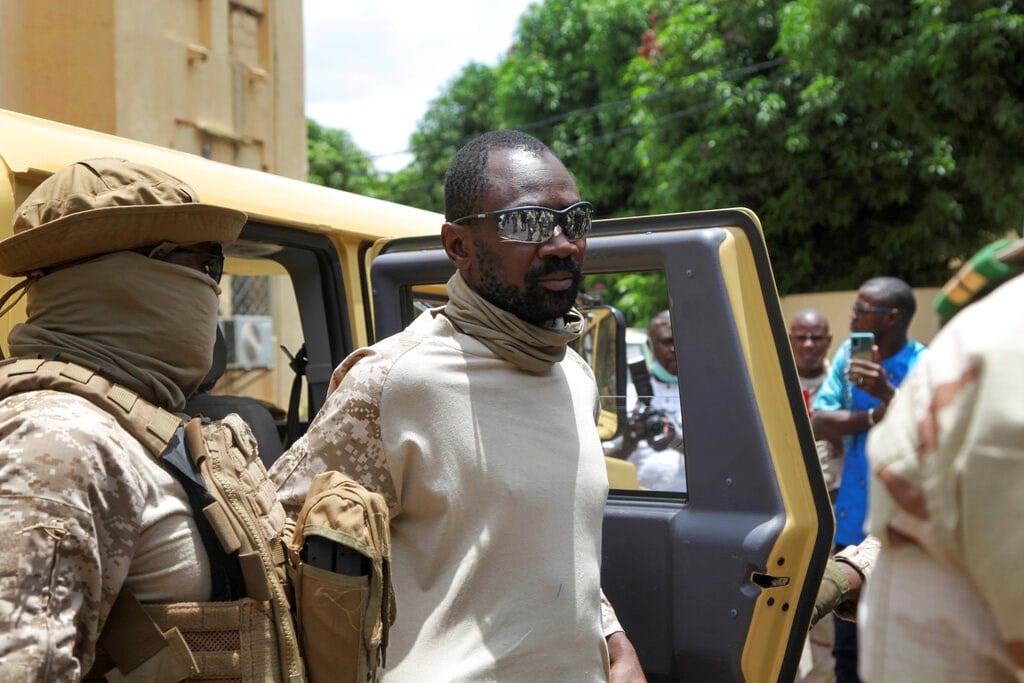Mali's Goita vows to reclaim control amid escalating insurgency
In the face of growing insurgency and instability, Mali's interim President Assimi Goita pledges to regain sovereignty, as Mali, Burkina Faso, and Niger unite under the Liptako-Gourma Charter.
-

Colonel Assimi Goita heads to a meeting with a regional delegation at the Ministry of Defense in the capital Bamako, Mali, August 14, 2020. (AP)
Mali's interim President Colonel Assimi Goita has promised to retake full control of the country amid a wave of insurgency and militancy.
On the occasion of Mali's 1960 independence from France, the leader of the military junta acknowledged the challenges that the government faces in addressing the threats posed by rebels and militants to the nation's security.
Militants have extended their hold over rural areas in the north, and on Thursday, they attacked the city of Timbuktu.
"The security situation is certainly tense," Goita said, but he stressed that "Mali will regain sovereignty over the entire stretch of national territory and bring basic social services to our people."
Mali expelled the French-backed G5 anti-jihadist force in 2022 and the UN peacekeeping mission in 2023, after the current leadership gained control of the government.
Read more: Deadly attacks on Mali: 64 lives lost in river boat, base assaults
Mali, Burkina Faso, and Niger sign security pact
On September 16, the leaders of Mali, Burkina Faso, and Niger signed a charter establishing an Alliance of Sahel States (AES) - the Liptako-Gourma Charter - to build a collective defense architecture and mutual collaboration aimed at benefiting the nations' peoples, Mali's interim President Assimi Goita said.
"I signed today with the Heads of State of Burkina Faso and Niger the Liptako-Gourma Charter establishing the Alliance of Sahel States (AES) with the objective of establishing an architecture of collective defense and assistance mutual for the benefit of our populations," he posted on X.
The Liptako-Gourma region — where the Mali, Burkina Faso, and Niger borders meet — has been ravaged by insurgencies in recent years.
"This alliance will be a combination of military and economic efforts between the three countries," Mali's Defense Minister Abdoulaye Diop told journalists.
"Our priority is the fight against terrorism in the three countries."
The three countries have been fighting the remnants of colonialism stemming from France's colonization of these countries and successive leaderships that have failed to secure their national interests.
A new wave of coups in Western Africa has seen military juntas take control of their countries, threatening French and Western interests in the region.
The charter signed on September 16 binds the signatories to assist one another -- including militarily -- in the event of an attack on any one of them.
"Any attack on the sovereignty and territorial integrity of one or more contracting parties shall be considered as an aggression against the other parties and shall give rise to a duty of assistance... including the use of armed force to restore and ensure security," it states.
Read more: Mali, Niger, and Burkina Faso establish collective defense alliance

 3 Min Read
3 Min Read








